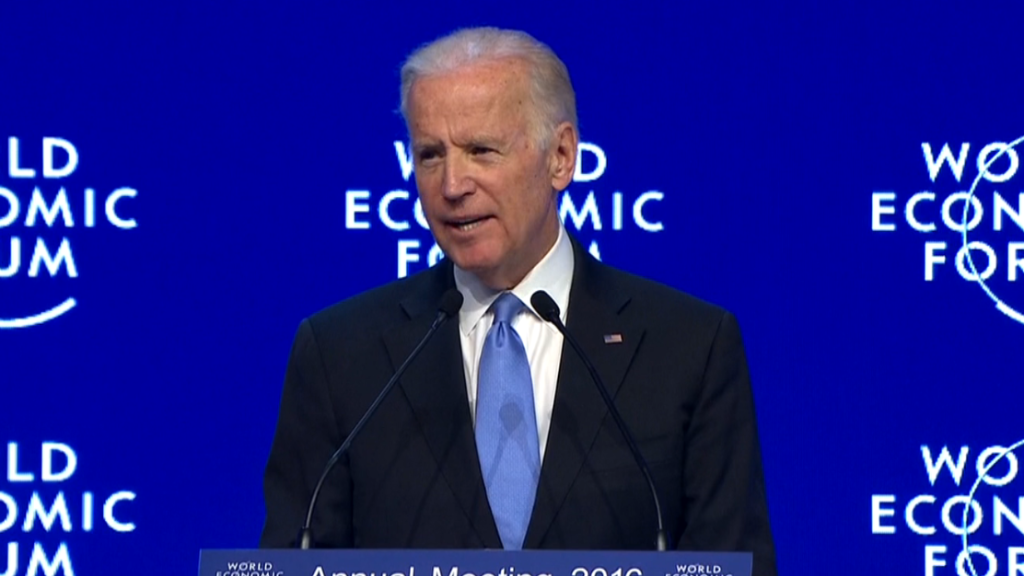
Hey federal government! The middle class would like some help, too.
A majority of Americans say the feds don't do enough to help the middle class, according to a Pew Research Center survey released Thursday. The middle class is more neglected than the poor or children, survey respondents said.
On the flip side, some 61% of respondents say that the federal government is giving too much assistance to the wealthy.
Pew did not inquire just what help Washington should provide for the middle class or what lavish benefits they are showering on the rich. But a prior Pew survey found that the middle class was not happy with the federal government's economic policy since the recent recession.
"If people think that the policies the government put in place to help the economy benefit big banks, corporations and the wealthy, that may help explain why they think the government is not doing enough to help the middle class or the poor," said Kim Parker, Pew's social trends research director.
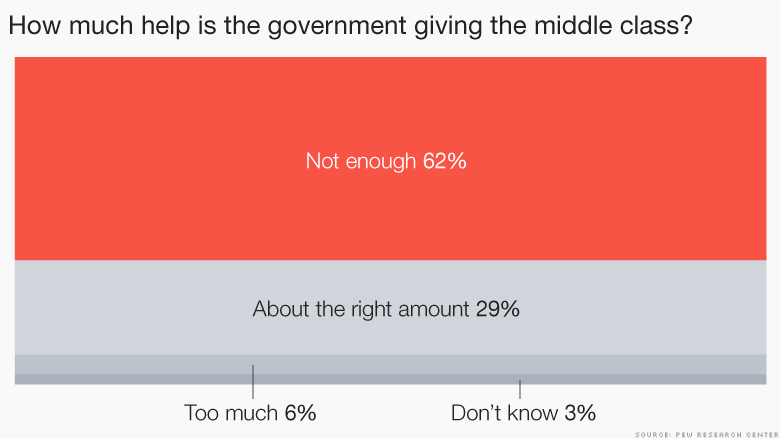
The survey comes just as the 2016 presidential candidates try to court the middle class. Democrats Hillary Clinton and Bernie Sanders argue that the federal government should do more for middle and working class Americans, including easing the cost of college and healthcare and boosting paid family leave and the minimum wage.
The Republican frontrunners, on the other hand, want to assist the middle class by minimizing the role of the federal government. The candidates argue that reducing federal taxes and regulations will boost the economy and allow people to prosper.
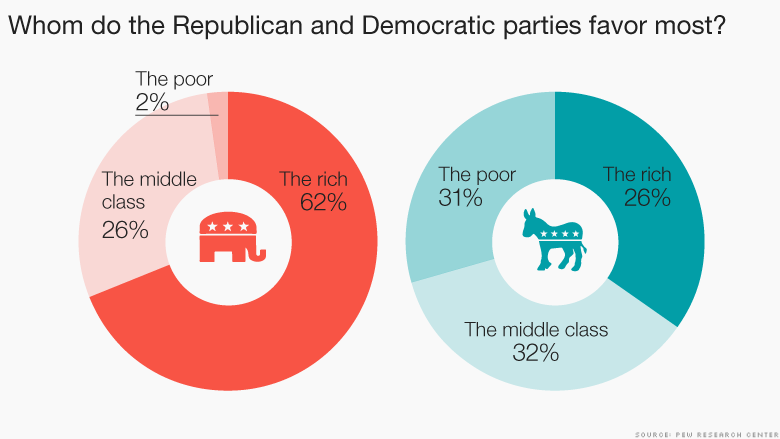
Americans clearly see the GOP as the party for the wealthy, the survey found. Fewer said Republicans have got the back of the middle class and only a tiny share said the GOP watches out for the poor.
The Democratic Party, on the other hand, are seen as supporters of the middle class and the poor. But they don't ignore the rich either.
These views have changed little since 2011, Pew noted.
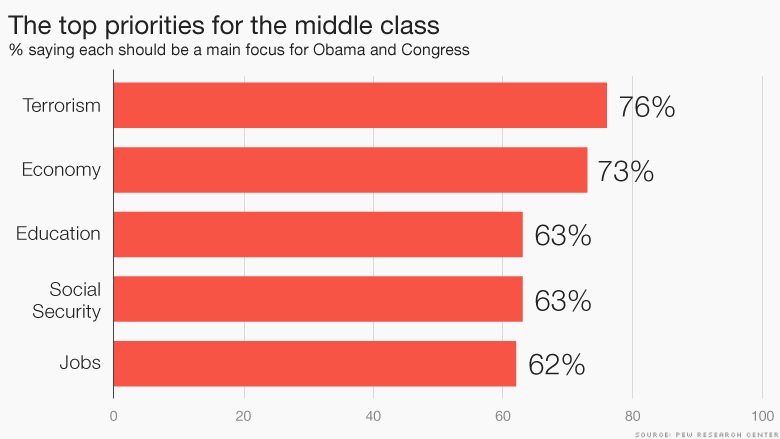
Middle class respondents said they were largely unhappy with the way President Obama is doing his job, and they aren't pleased with the direction the nation is headed in. Large majorities say economic conditions are only fair or poor.
The middle class' priorities are somewhat similar to the upper class, though the latter places a little more emphasis on the economy and education and a little less on terrorism, jobs and Social Security. The poor are more concerned about the economy, education and jobs than the middle class.
Related: The middle class no longer dominates in the U.S.
Stable employment is key to a middle class life, the survey found. Some 89% of respondents said one needs a secure job to be part of the middle class, while only 41% said one needs to be a homeowner.
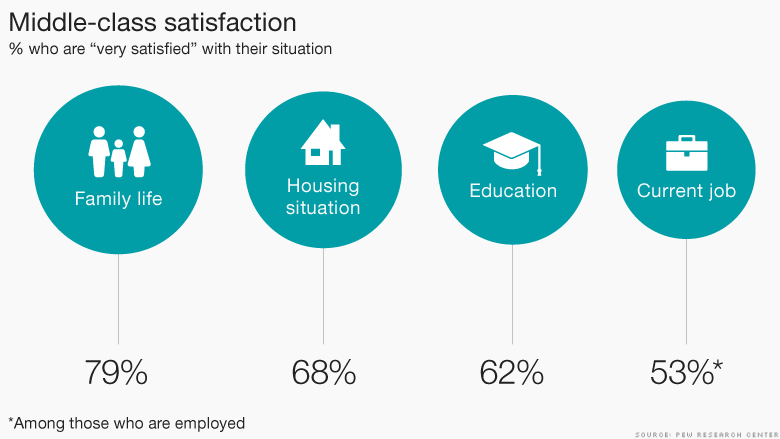
Middle class Americans are more hopeful about their own financial position. Some 70% said they were generally satisfied with their financial situation. Also, the share that said their personal finances were excellent or good rose to 55%, up from 43% four years earlier.
Fewer in the middle class say their incomes aren't keeping up with their expenses. But 43% said they are falling behind. While that's much lower than the 52% who felt that way in Pew's January 2014 survey, it remains elevated.
Related: Why isn't the middle class earning $156,000 a year?
"They are feeling better than they were a few years ago, but still, a significant chunk are feeling strapped," Parker said, noting that only 36% of middle class respondents felt there are plenty of good jobs available.


